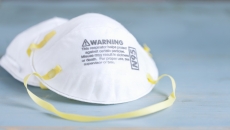OTTAWA — The federal government is introducing a new law to protect the use of French in Canada including a push to bring more francophone immigrants to the country.
The bill modernizing the Official Languages Act would ensure that federally regulated companies, including banks, airlines, and trains and buses crossing provincial lines, would have to serve Canadians in French as well as English.
Those that fail to do so, or do not allow employees to work in both official languages, could face financial penalties of up to $25,000.
The bill will also bring in more protection for francophones in English- speaking regions of Canada, as well as the English-speaking minority in Quebec.
Canadians involved in the justice system, including people going to court, would have a choice of using English or French.
Official Languages Minister Ginette Petitpas Taylor says the bill marks the first major modernization of official language laws in 30 years and will ensure the equality of English and French in Canada.






